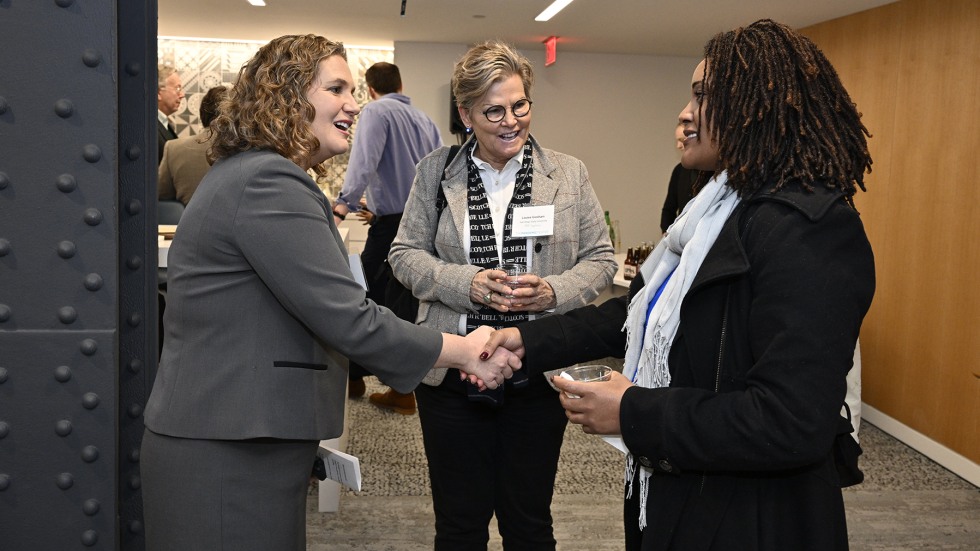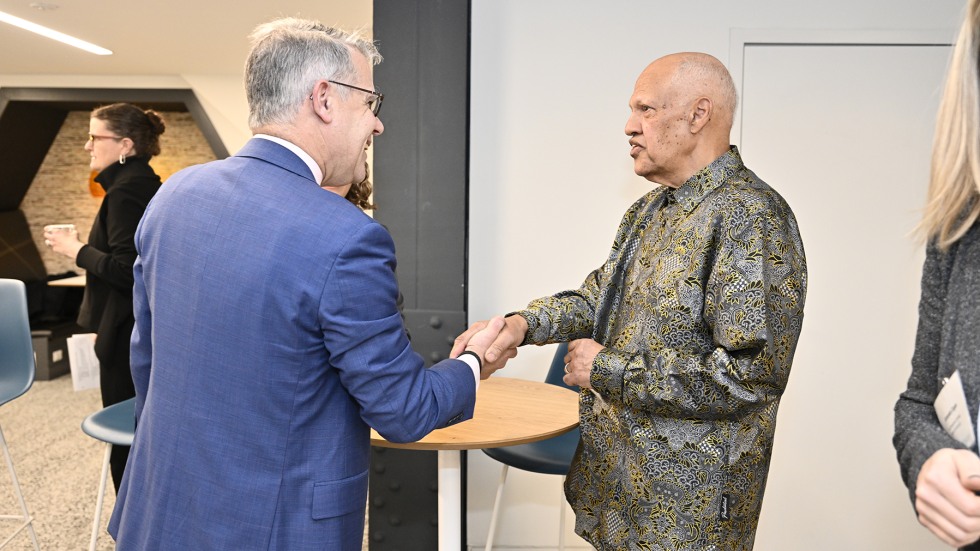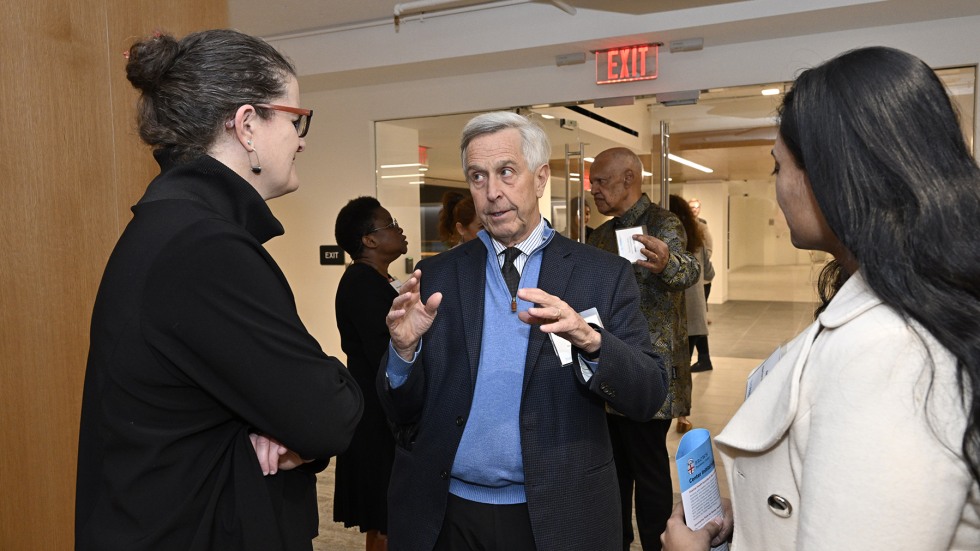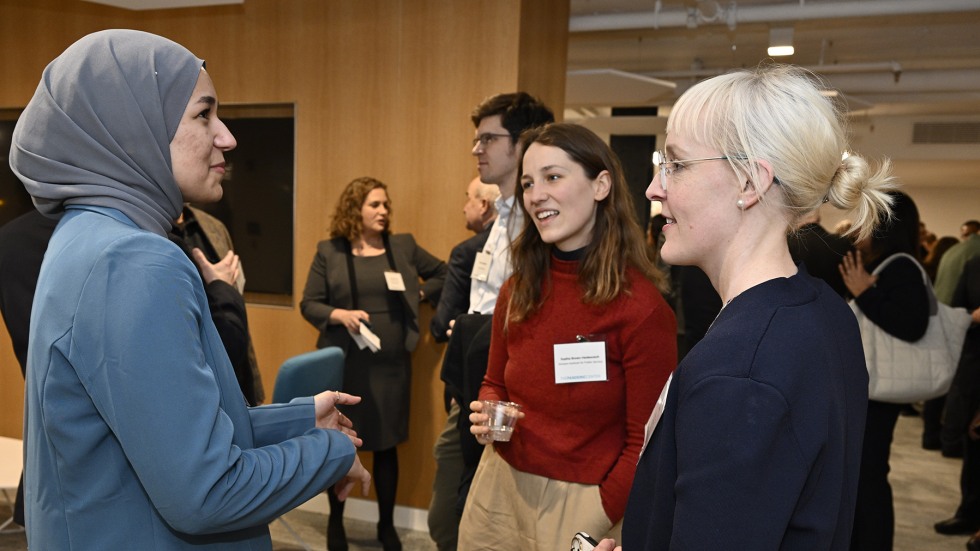WASHINGTON, D.C. [Brown University] — With the opening of a new Washington, D.C., hub for the Pandemic Center at the Brown University School of Public Health, current and future public health leaders at Brown will now have even more opportunities to connect with global and national policymakers.
“With this office, we are expanding opportunities for students and faculty to engage directly with public policy and the people creating and implementing that policy,” said Pandemic Center Director Jennifer Nuzzo, a professor of epidemiology at Brown. “The Pandemic Center is about impact, educating and inspiring the next generation of diverse public health leaders and building the skills to prevent and respond effectively to infectious disease emergencies. This office is central to that goal.”
The office is situated in the National Press Building in downtown Washington, two blocks from the White House. Leaders from the School of Public Health traveled to the nation’ capital this week to celebrate the opening of the office, which will serve as the Pandemic Center’s Washington base.
“If you want to drive policy, Washington is indispensable,” said Dr. Ashish K. Jha, dean of the School of Public Health, who served for 14 months as White House COVID-19 response coordinator. “If you want to engage with a broad range of stakeholders, Washington is indispensable. In order to do this work to make societies safer from pandemics, it has to be a multi-site approach. You can’t do it just from Providence.”
With interest in pandemic and biosecurity-related careers rising at Brown, leaders at the Pandemic Center are launching a new effort aimed at training the next generation of decision-makers and have compiled a growing list of internships, fellowships and other opportunities with global and Washington-based organizations that are working to combat pandemics.
The Pandemic Center also is providing mentorship for a number of Brown undergraduates, including students serving in placements within the center, as well as students serving in other organizations such as the Nuclear Threat Initiative and with the Office of the United States Surgeon General. With the new Brown health security hub in the nation’s capital, Pandemic Center leaders will continue to build strategic relationships that provide students with opportunities to learn, work and train.



